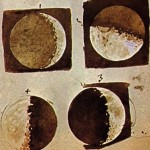Mar28
Learning from the Unexpected
Point: To innovate & discover: notice the unexpected
Story: When Galileo discovered the moons of Jupiter, he showed for the first time that not everything revolved around the earth. After discovering the moons of Jupiter, he turned his eye and his telescope toward other planets. He hoped to find moons around other bright planets, such as Venus. His search of Venus, however, proved fruitless. Venus had no moons.
But during his observations, Galileo noticed something else: Venus didn’t appear as a perfect disk the way that Jupiter did. Venus waxed and waned in phases just like Earth’s moon does. That is, Venus’ appearance gradually shifted from a crescent to a half-disk to a full disk. These observations led Galileo to realize that Venus must to be orbiting the sun, not the Earth. This contradicted the prevailing Earth-centered model of the solar system and confirmed the new heliocentric theory of the solar system. Although his initial search of Venus proved moonless, noticing the phases helped Galileo prove the more important point of the new model of the solar system.
Action:
- Leverage observations, experiments, and surveys to collect more data than the minimum
- Don’t discard unusual, unexpected, or disappointing results — try to explain them
- Use “unexpected” observations to develop new knowledge or to find new opportunities
For more information:
Galileo at Work By Stillman Drake
Galileo and the Discovery of the Phases of Venus
Planetary Motions By Norriss S. Hetherington
2 Comments »How-to, Innovation, Opportunity
2 Responses to “Learning from the Unexpected”











Claire Walter Mar 30th 2009 at 09:17 am 1
There is (or was) an organization called the Flat Earth Society that in the 20th century was still trying to disprove Gallileo. Which I guess just shows that some people will persist in not learning, be it from something unexpected or not – and that’s *not* a strategy or tactic for success!
Priscilla Apr 9th 2009 at 02:00 pm 2
Finding the unexpected is certainly an opportunity! Too often we instinctively back away from it, when the action that is much more likely to lead to innovation is just the opposite: go forward toward it with curiosity.